14 Virgin companies that even Richard Branson could not stop going bust
Student magazine: Branson dropped out of school at 16 to start a magazine called Student.

Virgin Cola: In a major brand extension, Branson launched Virgin Cola in 1994.
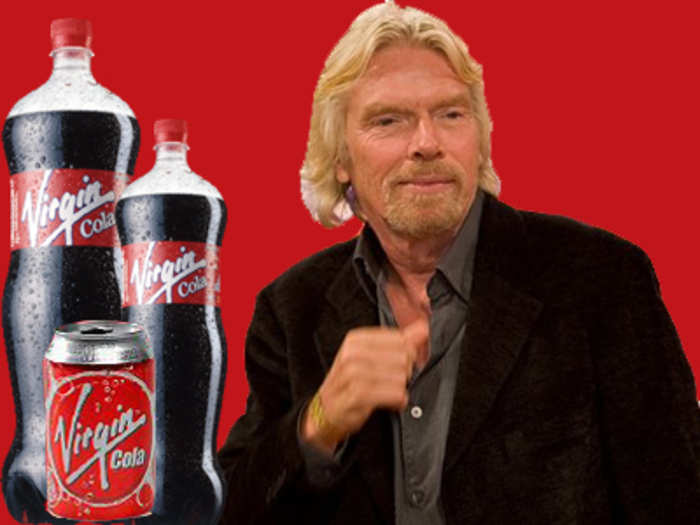
Virgin Cola was the most highly-publicized of Virgin's failed businesses. The drink, which was soft-launched exclusively on Virgin's planes and in its cinemas, managed to peak at a small but significant 0.5% market share in the US, according to The Guardian. Production of the drink stopped in 2012, after the US soft drink giants fought back.
However, Branson enjoyed the failure: "I got to drive a tank into Times Square and also to create a cheeky bottle in the shape of Pamela Anderson," he wrote in a blog post.
"That business taught me not to underestimate the power of the world's leading soft drink makers. I'll never again make the mistake of thinking that all large, dominant companies are sleepy!"
Virgin Vodka: Another Virgin drinks product which failed to take off.
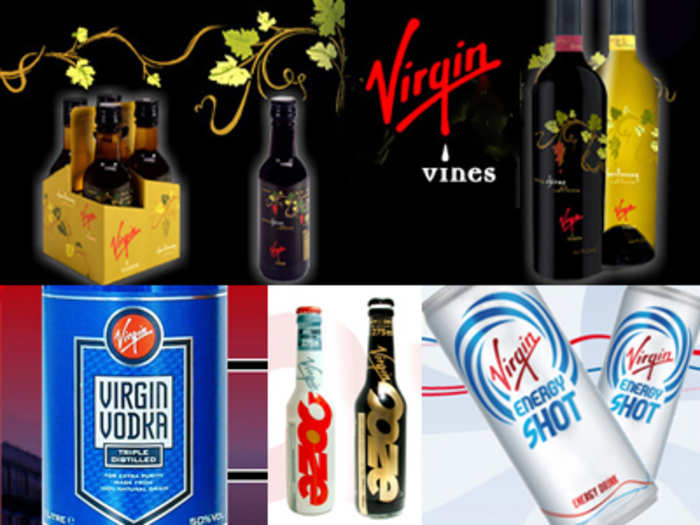
It was not just Virgin Cola, but the whole of Virgin Drinks (also launched in 1994), which turned out to be a failure, according to The Guardian. One of the most surprising of these products is perhaps Virgin Vodka.
The entirety of Virgin Drinks — including Virgin Vines, Virgin Energy Shot, and Virgin Ooze (a fizzy alcoholic drink) — folded in 2007.
However, Virgin Wines, which was sold to Direct Wines in 2005 and was bought out in 2013 by management, is thriving. It is on track to grow its business to £50 million ($73 million) by 2018, according to The Drinks Business.
Virgin's cosmetics business began in 1997.

Virgin Cosmetics sold beauty products, jewelry, and homeware. The line of cosmetics was sold online, in Virgin stores, and at home parties as two companies: Virgin Vie at Home and The Virgin Cosmetics company, according to Virgin's website.
In 2009, the business was sold in a management buyout to Ros Simmons and Ratan Daryani and renamed simply Vie at Home, according to The Telegraph. Vie at Home then became defunct in 2011.
Branson launched the Virgin Clothing collection in 1998.
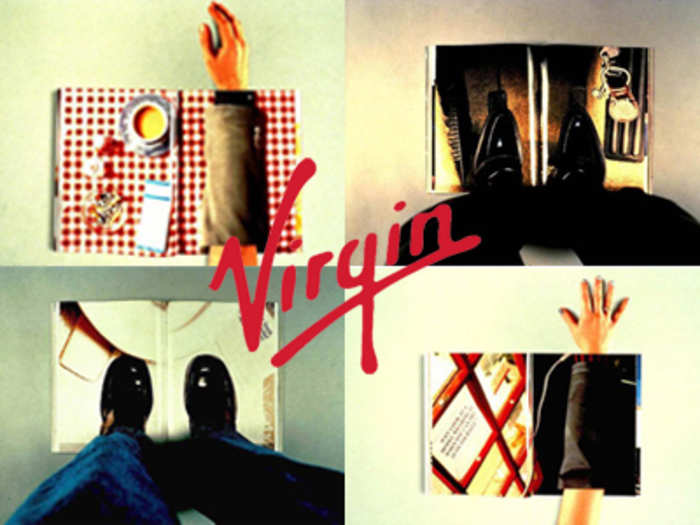
Virgin Clothing was a line of men's and women's clothing, footwear, and accessories aimed at those aged from 18-to-35-years-old. It was sold in UK retailers and department stores, but dissolved soon after its launch, according to CEO world magazine.
In 2003, Branson decided he wanted Virgin to become the next Victoria's Secret with Virginware.
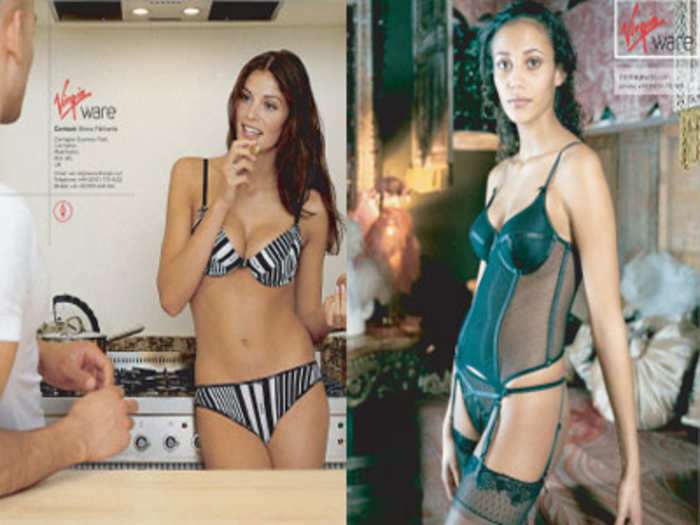
However, Branson's foray in the world of fashion did not end with his clothing line.
Virginware expanded rapidly after its launch, as a result of high online sales. It opened 30 retail stores between 2003 and 2004, according to Retail Week, including a flagship store near Carnaby Street in London.
But by April 2005, the brand collapsed into administration, according to the Telegraph. In July, Virginware closed with a fire sale of 35,000 pairs of Virgin-branded bras and G-strings.
Virgin Cars: Branson already had planes and trains, next came automobiles.
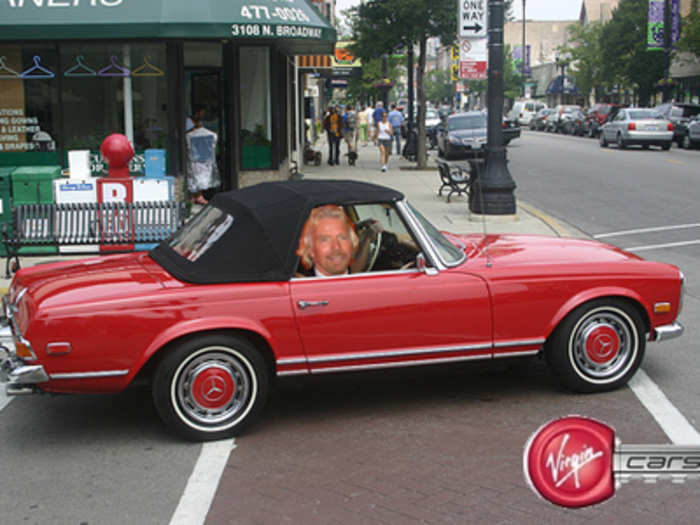
Virgin Cars was an internet automobile retailer that launched in May 2000.
While Branson predicted the company would sell 24,000 cars in the first year, by October 2000, the company had sold only 2,000 cars, according to PR Newswire. By 2003, the site had only sold 12,000 cars total, according to Marketing Week..
The company stopped operating on December 22 2005, as you can see from this message from the Virgin Cars website, recorded by the Wayback machine.
Virgin Brides: The wedding dress business didn't pan out either.
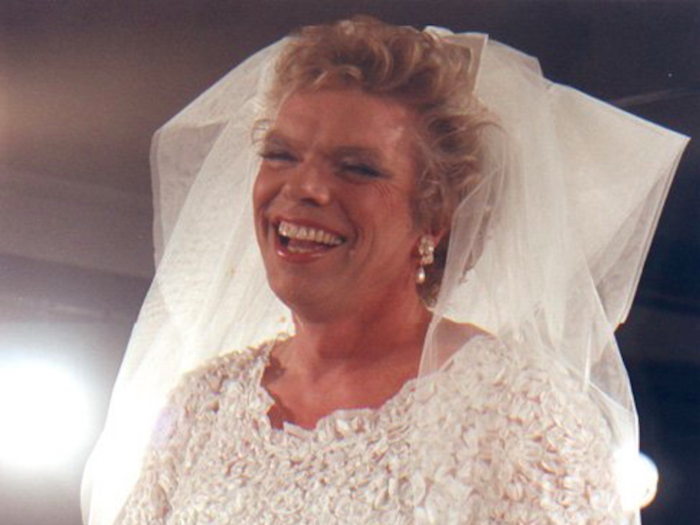
Virgin Brides opened its doors in several locations throughout England in 1996. For the launch of the store, Branson shaved his beard and wore a wedding dress.
However, the venture into bridal wear was short-lived. The final store in Manchester was closed in December 2007, according to City AM.
“I think because there aren’t many virgin brides, it never really took off,” Branson said later, according to The Guardian. “Or maybe it was the picture that put people off," he added.
The last New York Virgin Megastore closed in 2009.
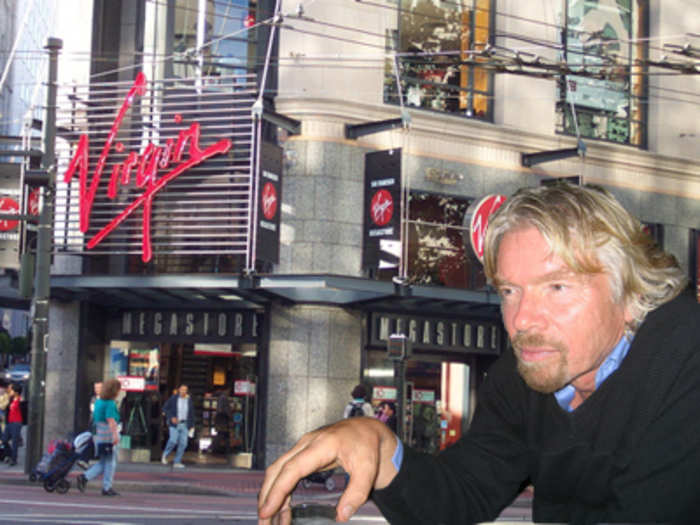
Virgin Megastores lived a long and often successful life. Opening in 1992, the stores finally succumbed to the impact of the digital music market in 2009. Richard Branson, however, admits that he probably kept the Megastores open for much too long.
"... the business was losing a lot of money. We did not make a speedy exit in part because I resisted closing the business. I was worried about losing the flagship stores' presence in Times Square and on Oxford Street since they were so important to brand recognition and our link with the past. But the scale of the losses meant that we had to sell the business to its management and focus our attention on markets where we could be the disrupter, not the disrupted," Branson wrote in a blog post.
Branson tried to take on Apple ... and lost.
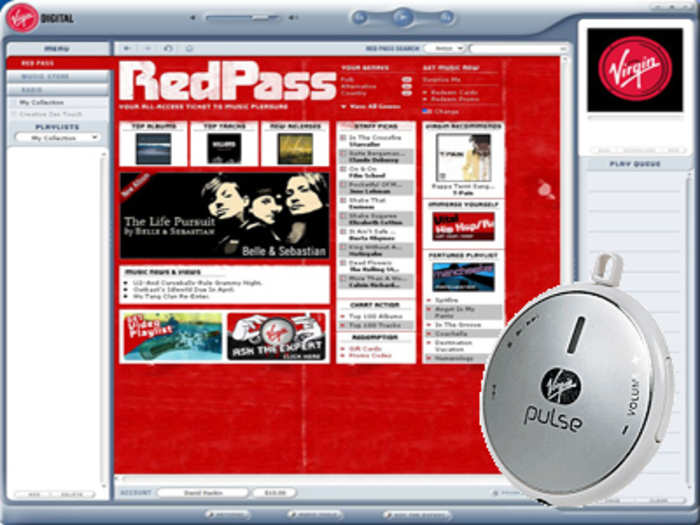
Virgin Pulse and Virgin Digital were Branson's answer to the iPod and iTunes, respectively.
"We founded the company in 2004 and then folded it a year later when it failed to make inroads against the major brands. The rise of Apple's iPods and iTunes meant that Virgin's device suddenly looked out of date before we had even launched it," Branson wrote in The Nation.
Not all of Virgin's airlines have fared as well as Virgin Atlantic.
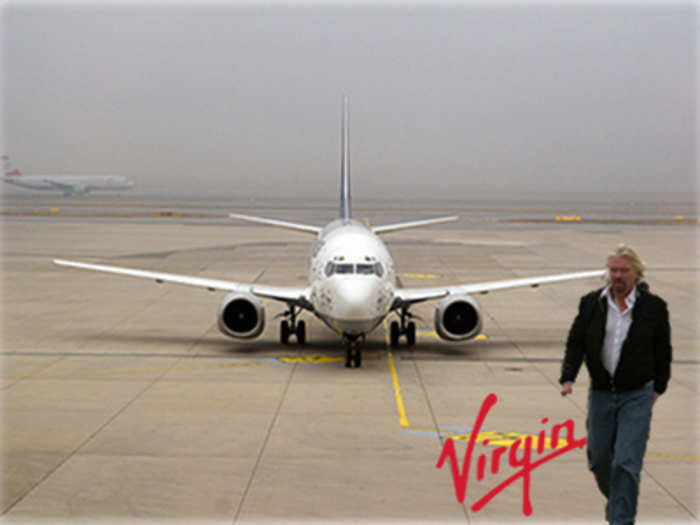
Based in Brussels, discount airline Virgin Express launched in 1996 to rival EasyJet. However, after losses, the airline close in 2006 and now flies as Brussels Airline, according to The Guardian.
Virgin Charter was launched in 2007 with the purpose of selling “empty leg” flights (flights that are available when a private jet flies back to its home airport after delivering passengers to their destination). Unfortunately, the recession put a damper on the whole private jet industry and the company closed shop in 2009, according to AIN online.
In 2014, Virgin Atlantic announced it was canceling its UK domestic flight service Little Red because it was not able "to make a positive contribution to Virgin Atlantic's network," the company said.
"Virgin Facebook": Virgin created a social networking site in 2000 ... we just weren't ready for it.
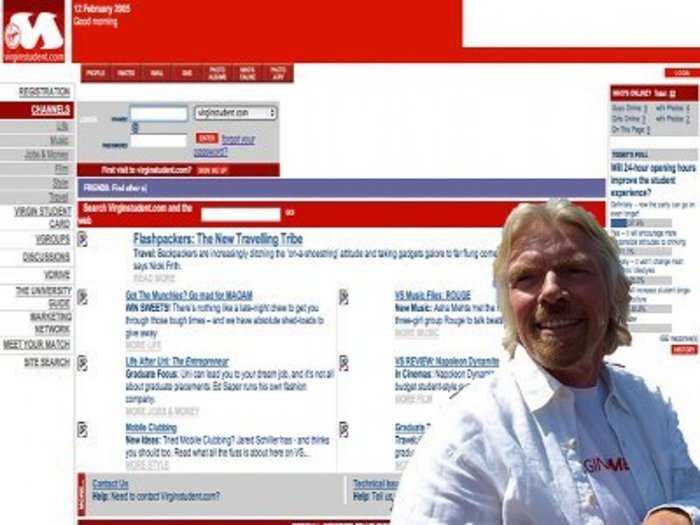
VirginStudent was a community site launched in 2000.
It wasn't called a social networking site at the time, but if you look at this archived page of the site on The WayBack Machine, you can see that it has much of the functionality of Facebook: profiles, photo albums, friending, groups and messaging. The site had hundreds of thousands of members, according to Ross Ferguson, who interned there in 2001.
VirginStudent eventually shut down in 2005 after a series of technical breakdowns. We're also guessing that the rise of MySpace at that time had something to do with it.
The Virgin Lottery: Richard Branson wanted to run the National Lottery, but lost the bid ... twice.
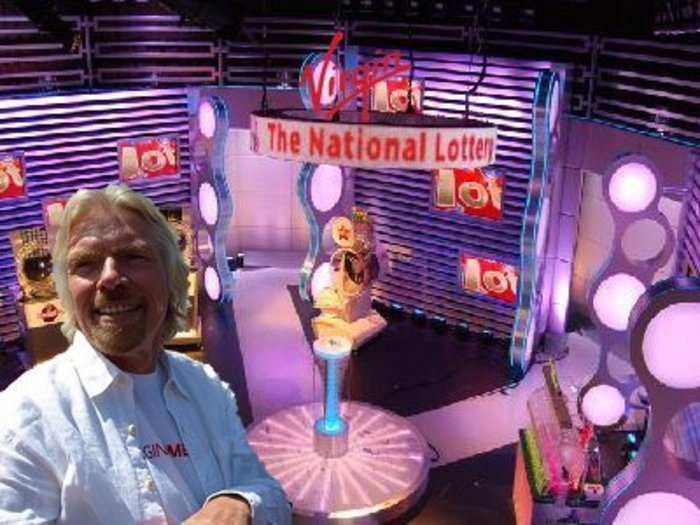
Branson eyed up the license for the UK's National Lottery to get access to the "endless free publicity to Virgin by association" according to The Guardian. He applied for the license twice. First in 1994 and again in 2000.
After Branson was awarded the 2000 bid, his competitor took the commissioner in charge of rewarding the license to court for inappropriate conduct in selecting Branson. Said commissioner was forced to step down and the competition was reopened. This time, Branson lost.
Virgin Games/Virgin Interactive: Virgin was a long-time developer and publisher of video games.
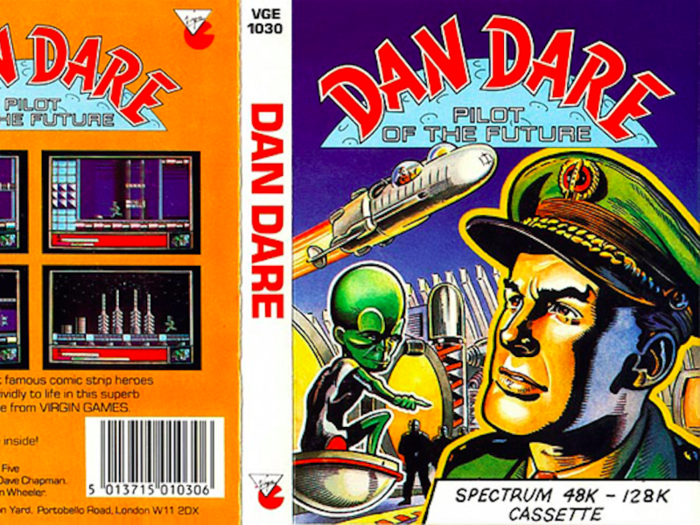
In 1981, Richard Branson founded Virgin Games: a video-game development studio, which was later renamed Virgin Interactive. Initially using freelance developers to produce games, in 1984 it hired its own in-house development team known as the Gang of Five. This team had success with games like Dan Dare and Sorcery.
Virgin later partnered with Disney to produce titles like The Terminator and The Lion King, and also published Resident Evil and Street Fighter in Europe. However in 2003, Virgin sold its remaining assets to the French publisher Titus Software, and the company was renamed Avalon Interactive, according to SegaRetro.org.
Popular Right Now
Popular Keywords
Advertisement